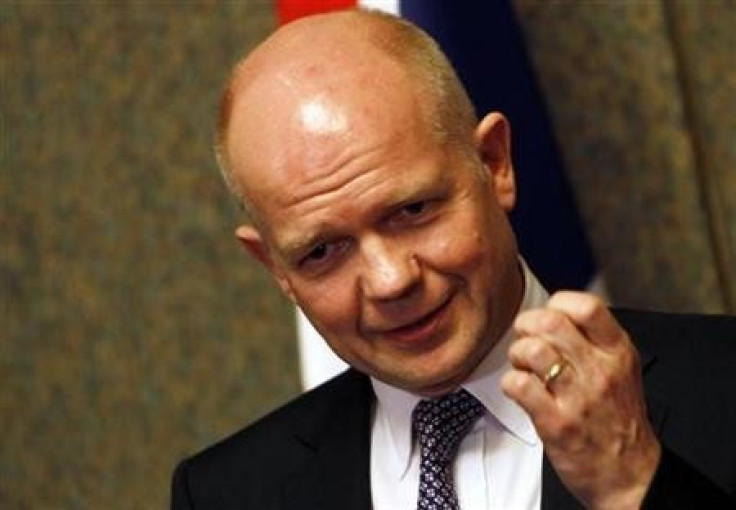William Hague to 'Draw a Line' Under Torture Claims

With Britain's international reputation threatened by charges of torture by intelligence agencies, Foreign Secretary William Hague on Wednesday will stress the government's commitment to "draw a line" and ensure reforms to preserve secrecy.
According to extracts from a rare speech released in advance by his office, Hague hopes that with a strengthened legal framework, the aptitude of the intelligence agencies could be tapped to support security and foreign policy.
"The very making of these allegations undermined Britain's standing in the world as a country that upholds international law and abhors torture. As a government we understand how important it is that we not only uphold our values and international law, but that we are seen to do so," Hague is expected to say. "So this will be our government's approach: drawing a line under the past, creating the right legislative framework so that the interests of national security and justice are reconciled, and drawing on the talents and capabilities of the intelligence agencies to support foreign policy and our national security."
Hague, who oversees the Secret Intelligence Service, MI6 and the Government Communication Headquarters intercept agency, will acknowledge that the operation of the agencies involves being "dangerous at work."
"Many agents and sources risk their lives -- some lose their lives -- to give us the vital information to keep us safe. We have a duty to protect them," he will say, reported Reuters.
Hague will also talk about how each year he sees hundreds of operational proposals from the agencies and does not approve of them all.
"Intelligence throws up some of the most difficult ethical and legal questions that I encounter as foreign secretary, and that my predecessors in this position also have had to grapple with," he will say.
According to a report from Reuters, Hague will say: "Some of them relate to the proper use of intelligence in reaching and justifying decisions in foreign policy - the most controversial instance of this, the Iraq War, is currently the subject of an inquiry.
"But we also saw allegations of UK complicity in extraordinary rendition leading to torture. The very making of these allegations undermined Britain's standing in the world as a country that upholds international law and abhors torture."
© Copyright IBTimes 2024. All rights reserved.





